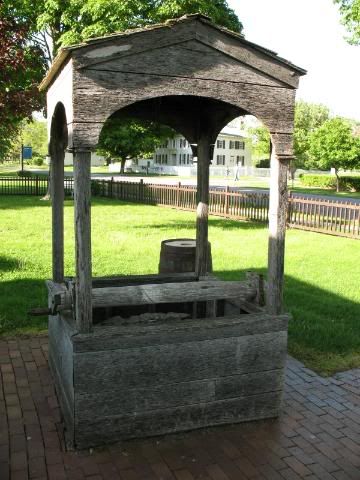From the History of Water Supply

Water is power not only in the hydraulic sense, but in relation to progress and culture: campaigns as well as fortresses have been lost, projects rendered impracticable and communities have decayed for want of water.Nature has provided prototypes for most of man's devices and, just as the streams and rivers anticipated water distribution systems, so tanks, cisterns and reservoirs have their natural counterparts in water holes and natural pools. Long after man had found ways and means to organize water supplies, find them where they were hidden and lead
them to where he wanted them, streams and pools in their natural state have served as communal water supplies, even in more or less civilized Europe. The 17th century marks the beginning of the new order in communal organization and in relation to water supply, the beginning of large-scale schemes. All through London's history until modern times, the question of water supply continued to be a problem. In the 18th century even with the appearance of larger water companies the water supply was far from being satisfactory. It was a usual practice at the time to lay on water for two hours every second day. Water drawn from the river Thames was in a state that was offensive to the sight as the intake was found to be only three yards from the outlet of a great sewer. As a mutter fact it took 2 outbreaks of cholera to pass a Bill for an im¬proved water supply in the middle of the 19th century. In spite of the progress made in the field of water supply in many countries, there is much to be done yet. In Asia, Africa, Central and South America outside the great cities, methods are primitive as ever they were; village ponds
are.still used in Africa and Asia for drinking, washing and bathing and as watering places for cattle, in Madagascar in recent years people have had to carry their water bottles several miles and, as some of them can only do the journey twice a week, they have trained themselves to do with the minimum of water, drinking only on alternate days and never washing during a drought. In Japan, running water is still a luxury, even in the great cities: the average household have to carry water from a central source, while the villages rely on springs and streams. The speedy industrialization of the Soviet Union has also made the problem of water very acute. The situation in this country would have been much worse were it not for a number of important measures undertaken by the Soviet Government immediately after the Great October Socialist Revolution. Our water resources Were protected by the Decree on Forest signed by Lenin in May 1918. At present the requirements of water supply in Moscow both for the people and industry are fully met by several water treatment stations. In our capital water consumption per capita is very high, namely, it is more than 500 litres per day.Some projects of new water treatment stations are being considered to satisfy the growing needs of water in our capital.
Other posts:

0 comments:
Post a Comment